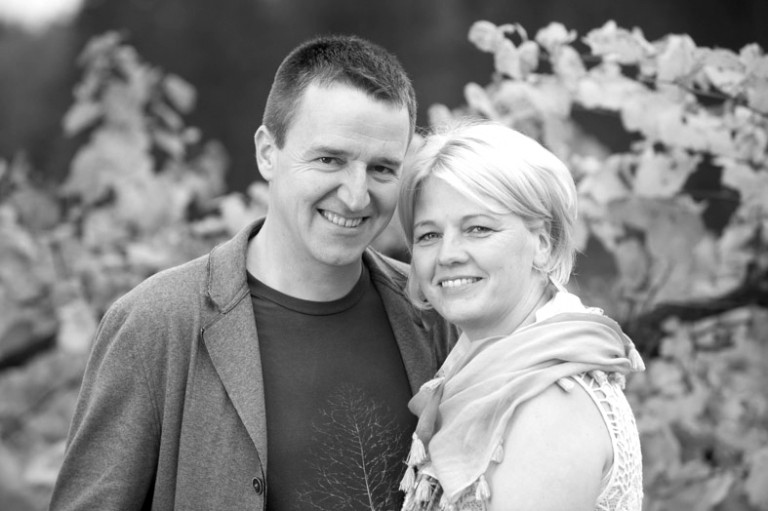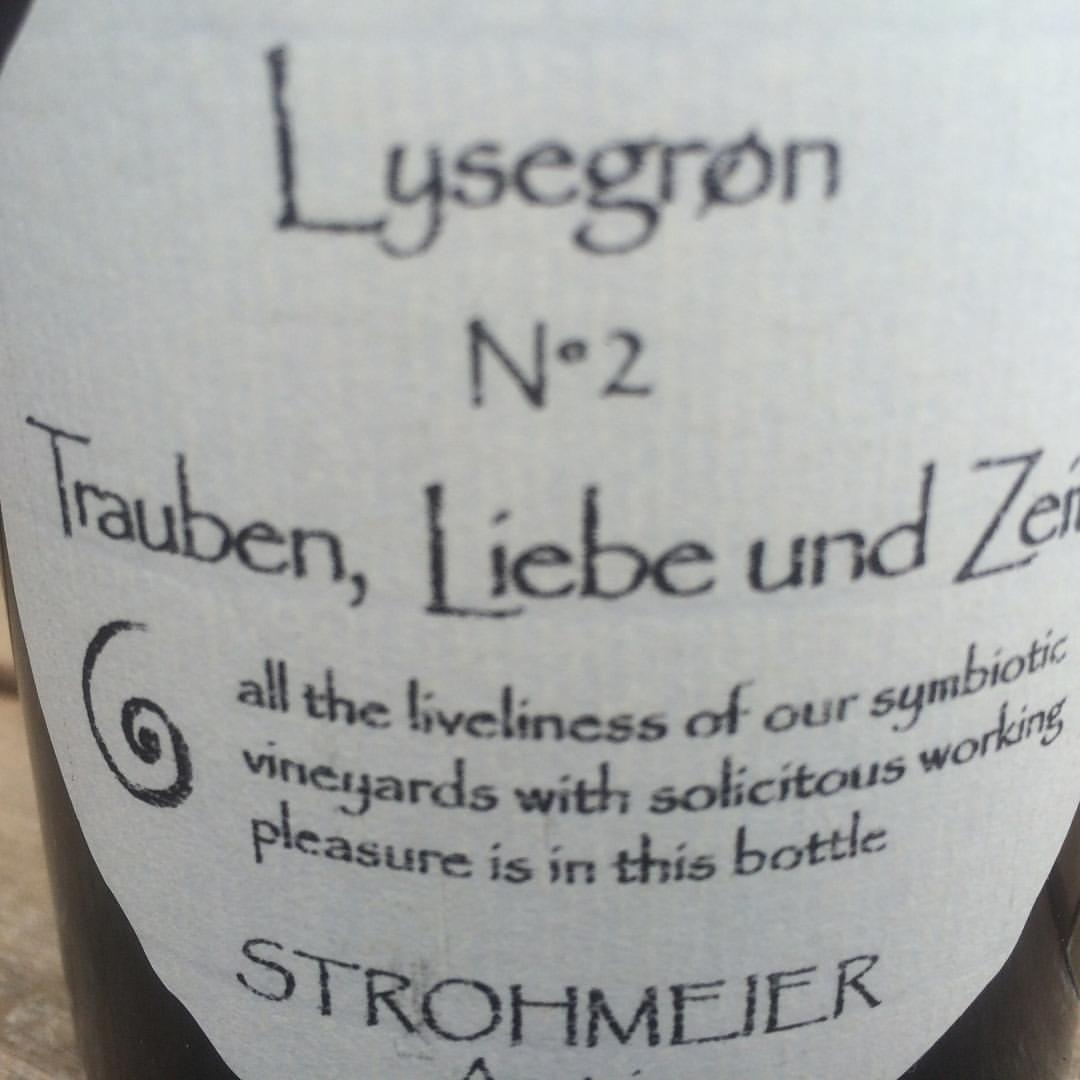Franz Strohmeier makes wine in what is considered the most difficult, yet also the most historic, region of Austria: West Styria. A true steward of the land, Strohmeier’s relentless TLC in his vineyards results in wines that seem ethereal. Here’s what our Sir Wregg had to say about them:
‘The wines will not flatter our preconceptions – our tasting requires us to engage our palates and accept new registers of texture and flavour. All the wines possess a bitterness verging on the astringent, yet with an evenness in the mouth as if the matter and energy in the wine has been equally distributed throughout every molecule of liquid.’
We think they are just plain beautiful.
Franz kindly took the time out from rigorous work in the vineyards to answer a few questions for us. Read them here:

You started out initially as a sekt (sparkling wine) producer, but your philosophy and wines seem to have changed significantly over the years. Can you explain this change?
I started in 1988 after attending oenology school at Klosterneuburg (near Vienna) by producing Schilcher-wine, a light and fresh Rosé with very high acidity at that time.
Sparkling was then the second part. I have made that myself since 1996.
In 1999 we (my wife and I) started our own cellar, away from my parents and additional rented vineyards.
From that time on we were free to think about wine-growing and winemaking – what we did and what we possibly should do in future. There were a number of reasons why it was important to change (Not only my own health problems when I sprayed chemicals in the vineyards, my allergies to SO2, etc.).
Nevertheless, the most important idea was a question: what is a real wine and how can wine be unique (and also help for long term economic development)? It was mainly a philosophical process to find the answer.
Finally, I want to grow wine without any additives – this will bring the unique character to the wine. Moreover, with such a wine, we will also survive as small farmers. This wine-growing path I decided to take is too much of a risk for bigger wineries – they won’t do it. They have to keep wine in a kind of corset. I can keep it very free and it is for me a kind of art and culture having a wine that is made just out of grapes.
My passion is to always be part of all processes, from growing the vines, to earning the grapes – following the wine till the end – which also means to be observant when I’m at tastings and work out how we can convey our story and wines to the consumer.
What has the journey into organic/biodynamic farming been like? Was it particularly difficult to achieve in a wet/cold climate such as West Styria?
Organic farming is the start – the basic process to achieve grapes that are able to make wines without additives – and biodynamic features help the grapes to survive better in as fast changing a climate as West Styria.
What’s difficult to accept is that we will often get vintages with very low yields. Even I knew this from the very beginning.

Did you make mistakes in the beginning, and how have you learned from them?
Nature is so rich – all processes of growing can be so different from year to year – that I don’t want to say ‘mistakes’. What I have learned is this: the more I can spend time in my vineyards to be able to watch and touch the better. From this I will be given the right instructions.
What are the soils like and how do you think they are imparted into the final flavours of the wines?
Our soils are mostly developed from Gneis and sometimes Loam, but always with good microbiology (Humus) on the top.
Of course the soil is important for the final flavours, but also the microclimate of the vintage as well as the ripeness of the grapes, the yields, and the ‘growing’ of the wines in the cellar.
Beside the flavours, it’s most important to have a wine full of live – vibrancy – and that you can only get from a soil that is alive (lots of microbiology).
How have the past few vintages been for you?
2012, 2013, and 2015 were very nice and worked well. 2014 was very difficult.
This is historic wine country. There are records documenting your vineyard in Lestein back to the 14th century. How does this history influence your winemaking and growing approach?
They made wine in the past without chemicals and agricultural industry. Why should I not try it again?!

It’s been said that your wines are hard to dissect; to break down into obvious components of, say, fruit, tannin, acidity, but that the whole is greater than the sum of the parts. What do you attribute this to?
Live is movement and living wine is too. Characteristics that are always changing are hard to describe.
You work with almost no sulphur, not even on the vines. Many winemakers say this is impossible, yet your wines are stable, clean, and travel well. How do you do it?
After increasing pressure of Oidium from year to year, I’m back to spraying sulphur on the vines in the early season of the year, May and June (it seems that the climate is becoming more and more difficult for our region, more than in previous years).
However, a late infection of Oidium and Peronospora on leaves can help to increase the natural tannin and antioxidant-structure in the vine-plant and lately also in the grape-juice. This brings more potential for reduction and long distance freshness into the wines.
You are experimenting with not pruning some of your vines at all. What was the thinking behind this decision and how have the results been so far?
The idea behind it is creating more harmony in the growing process. If 90% of everything that was growing the previous year is not pruned away, it makes for a smooth and healthy system that is inclusive of all of nature’s working parts in the vineyard: insects, rabbits and deer can also participate and there is still enough left for our harvest.
This system is nice with regards to less work and, at direct comparison, I’ve seen less disease pressure (Peronospora) and higher yields. However, I can see a pattern of alternating years taking place (every second year it’s fine, but the years in between we are losing too much fruit to fungal diseases.) Therefore, I will start some green pruning of bunches with grapes in summertime to reach more continuity.
Who have been your biggest influences in your decision to make orange wine and how has it been received in your native Austria?
Of course I was very impressed with wines made by Giorgio Clai, Alex Klinec and Radikon, but also in general it was an important question for me: how to bring the maximum character out of my grapes into the wine. Therefore I think fermenting on the skins a good tool.
Since the start, there have been a small group of fans who really love these wines. In general our customers in Austria were very nice to me in the beginning. And then I saw that most of them didn’t want to disturb my enthusiasm. A lot of them bought the wines but only once and then they stopped. I think it was a bit of a shock for the Austrian palate. After many years it’s starting to develop more and more in a natural, positive way.

